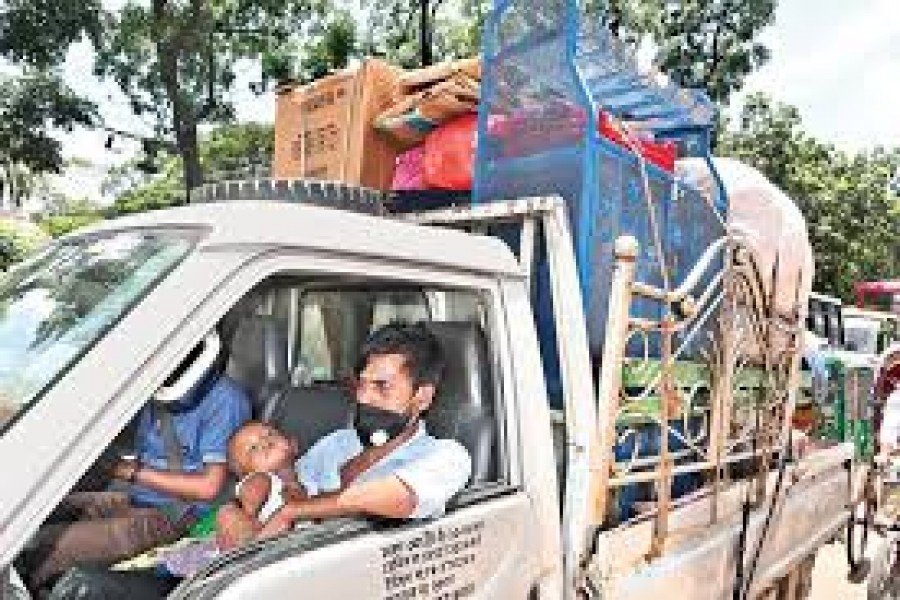
Published :
Updated :

Silent migration from Dhaka to other parts of the country is on in a complete reversal of the trend witnessed for decades. The minute microorganism called the novel coronavirus has made it possible.
Policymakers have been worried over the unending inflow of rural people to urban centres, particularly to the capital city. Experts have said and written volumes suggesting ways to reverse the trend.
Now, the trend is set, but none is happy how it has happened. All wanted the rural people going back to their villages that are bustling with economic activities. The experts have always suggested taking appropriate steps to generate sufficient employment opportunities in rural areas so that people do not have to migrate to urban areas in search of livelihoods. But, unfortunately, not much has happened in that direction.
Many have been thrown out of their jobs and most self-employed people's earnings have shrunk by a big margin, in some cases, by nearly two-thirds of the pre-COVID days. Even many banks and financial institutions have sacked their contractual employees engaged in marketing and credit card promotion activities. Shops and business establishments have downsized their employees because of very poor daily turnovers. Hotel and restaurants are closed.
Many schools are not paying salaries to teachers for months together. Some educated people and students used to meet their living expenses working as house tutors. That opportunity is also gone. Even the day labourers are finding it hard to get work as construction activities are at low ebb.
Until recently, their journeys towards village homes--two Eid festivals usually prompt millions to make homeward journeys--used to be wrapped with happiness. But the ongoing journeys though taking them to old destinations are marked by total uncertainty.
None keeps track of the people returning to their village homes, but the process of going back to roots, though under a different setting and circumstances, has been taking place since the restrictions on the movement of transports were lifted on May 31 last. Lately, the caravan of outbound people has only become longer. Many families and individuals struggled hard to stay afloat in a difficult time with the hope that things would change for the better. Hopes dashed, they have decided to withdraw and start their journey back home. Their vacant look tells it all.
House rent remains one of the major factors that are driving these families out of the capital. Back home, most of them might find a shelter for which they will not be required to pay rent at the end of every month.
Rent apart other things almost remain uncertain for most of the returnees. They had migrated to urban areas, particularly to Dhaka, to earn a living since employment opportunities are scarce in rural areas. Now, these people do not know how they would get both ends met. COVID has pushed them down into the poverty trap again and there is little scope to come out of it despite going back to village homes.
The situation facing these returnees is far worse than that of the poor people who had been staying in villages all along. The latter has been receiving some help from the government regularly under the safety net programmes, though the same is not adequate for survival. But the returnees from cities and towns being not on the official lists of beneficiaries would not get such help.
So, the government through the local level people's representatives and officials should extend some help to these returnees in such a difficult time.


 For all latest news, follow The Financial Express Google News channel.
For all latest news, follow The Financial Express Google News channel.